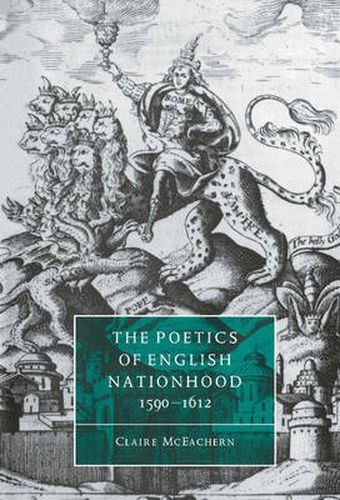Readings Newsletter
Become a Readings Member to make your shopping experience even easier.
Sign in or sign up for free!
You’re not far away from qualifying for FREE standard shipping within Australia
You’ve qualified for FREE standard shipping within Australia
The cart is loading…






The Poetics of English Nationhood is a study of the formation of English national identity during the early modern period. Claire McEachern aims to recontextualise our understanding of the term literary through an examination of Spenser, Shakespeare and Drayton. She shows how the concept of nationality in their work is always fluid; it crucially depends on a sense of intimacy that exends across and beyond hierarchies and boundaries. McEachern shows how those texts we traditionally label literary already encode and personify power, thereby sealing the intimacy which binds the nation as an imagined community. The representation of faith, fatherland and crown in Tudor texts continually personified English political institutions, promoting an enduring social order and collective unity. By focusing on the rhetorical forms of cultural unity in Tudor texts, McEachern traces a profound shift from a monarchically defined Englishness to a system based within the cultural institution of the common law.
$9.00 standard shipping within Australia
FREE standard shipping within Australia for orders over $100.00
Express & International shipping calculated at checkout
The Poetics of English Nationhood is a study of the formation of English national identity during the early modern period. Claire McEachern aims to recontextualise our understanding of the term literary through an examination of Spenser, Shakespeare and Drayton. She shows how the concept of nationality in their work is always fluid; it crucially depends on a sense of intimacy that exends across and beyond hierarchies and boundaries. McEachern shows how those texts we traditionally label literary already encode and personify power, thereby sealing the intimacy which binds the nation as an imagined community. The representation of faith, fatherland and crown in Tudor texts continually personified English political institutions, promoting an enduring social order and collective unity. By focusing on the rhetorical forms of cultural unity in Tudor texts, McEachern traces a profound shift from a monarchically defined Englishness to a system based within the cultural institution of the common law.